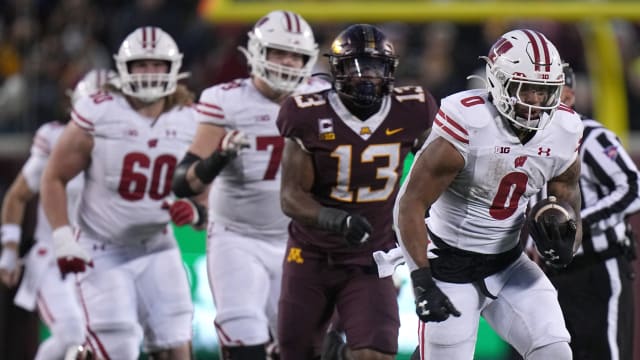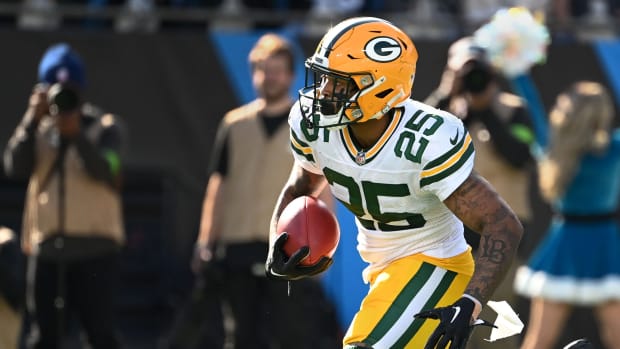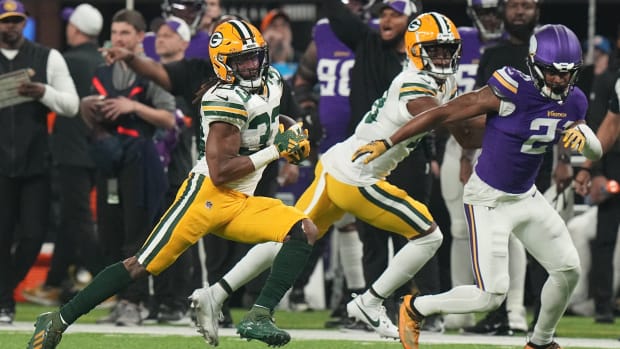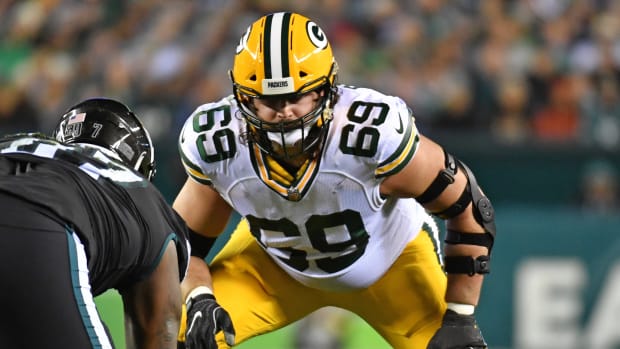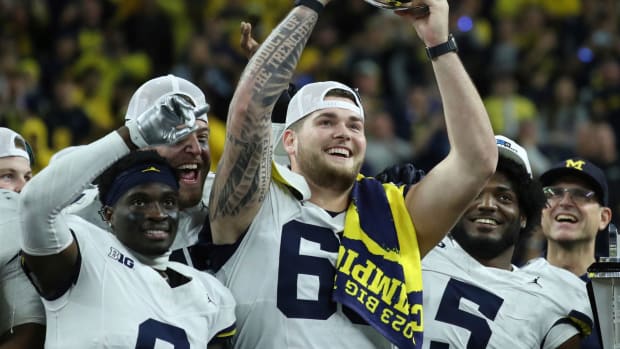
After Contracts Void, Packers Are Significantly Over Salary Cap
GREEN BAY, Wis. – Contracts for safety Darnell Savage, cornerback/kick returner Keisean Nixon and offensive tackle Yosh Nijman have officially voided, turning the Green Bay Packers’ 2024 salary-cap outlook from bad to worse.
Last offseason, the Packers added void years to Savage’s fifth-year option, Nixon’s one-year contract and Nijman’s restricted free-agent tender to help deal with 2023’s cap problems. The short-term gain turned into pain this week with their contracts voiding and the restructured money – all $9.48 million of it – getting dumped onto the 2024 salary cap.
According to OverTheCap.com, the Packers are almost $5.25 million over the projected salary cap of $242 million. Once the projected 11-man draft class is signed, that number will swell to about $9.78 million.
That’s just to get to break-even. That doesn’t leave a single dollar for re-signing any of their own free agents, adding any outside free agents or having the spending money to do even such mundane things as elevating a player from the practice squad to play in a game.
It could be worse. Actually, it has been worse. When the NFL set the cap at $225 million almost exactly a year ago, the Packers were $16.48 million over the cap. That figure didn’t include signing the draft class or handling the eventual trade of Aaron Rodgers. Including those figures, the Packers were in about a $29 million hole.
No wonder general manager Brian Gutekunst didn’t sound overly concerned when he talked to reporters on Feb. 1.
“I think we’re getting to a little bit better spot than we have been in the past,” he said.
True, but how did the Packers get in this predicament?
Last year, Savage played under the fifth-year option of a fully guaranteed $7.901 million. Rather than have that full amount on the cap, the Packers cut Savage’s base salary to the league minimum, turned the rest into signing bonus and inserted four void years onto the back end of the contract to help with the salary-cap math. That sliced his 2023 cap number to $2.444 million but left behind $5,456,800 of bonus money that has moved onto the 2024 salary cap.
In free agency last offseason, the Packers re-signed the All-Pro Nixon to a one-year, $4 million contract. Rather than have every penny on the cap, they tacked four void years onto the end of the contract. Thus, his $1.85 million signing bonus was prorated over five installments of $370,000. The final four years accelerate onto the 2024 cap to the tune of $1.48 million.
Finally, there’s Nijman. Because he played so well in 2022 and because of David Bakhtiari’s uncertain status, the Packers gave him the second-round restricted free agent tender of $4.304 million. The Packers cut that to the minimum salary of $1.125 million, turned the rest into signing bonus and tacked on four void years. That sliced his 2023 cap number to about $1.76 million but left behind $2,543,200 of bonus money that has been added to the 2024 cap.
Had the Packers re-signed those players, they would have avoided the salary-cap carnage. Because that did not happen, Green Bay’s cap situation went from bad to worse.
That the Packers did not re-sign, for instance, Nixon doesn’t mean they don’t want to re-sign him. However, it takes two sides to negotiate a contract and there’s little reason for Nixon to sign before seeing what’s available on the open market.
The Packers have to be in compliance with the salary cap by March 13. That is the start of the league-year. At that point, only the 51 highest salary-cap charges count against the cap. So, they’ve got time to get their financial ducks in a row so they can at least sign some low-budget veterans in free agency.
Green Bay has one simple path to creating cap space, and that’s releasing or trading left tackle David Bakhtiari. Bakhtiari has – by far – the highest cap charge on the team at a little more than $40 million. By removing his $20.2 million base salary and a workout bonus from the ledger, the Packers would create close to $21 million of cap space, though his leftover signing-bonus money – about $19.1 million – would be left behind as dead money.
A contract extension for defensive tackle Kenny Clark and a restructure of cornerback Jaire Alexander’s $8 million roster bonus would help lessen the blow from the players with the second- and third-highest cap charges. Running back Aaron Jones, who has the fourth-highest cap charge on the team, took a $5 million pay cut in exchange for more guaranteed money last year. That could happen again this year with the 29-year-old due a base salary of $11.1 million.
The players ranked fifth through seventh in cap, outside linebackers Preston Smith and Rashan Gary and left guard Elgton Jenkins, have roster bonuses in excess of $5 million that could be restructured, as well, but that’s continuing the credit-card approach to cap management.
Former All-Pro linebacker De’Vondre Campbell has the eighth-highest cap charge. Releasing him would save about $2.6 million while leaving behind about $11.63 million in dead money.
All those things would save cap dollars. A contract extension for quarterback Jordan Love, which he can sign on or after May 3, will increase his cap number from the scheduled $12.76 million.

